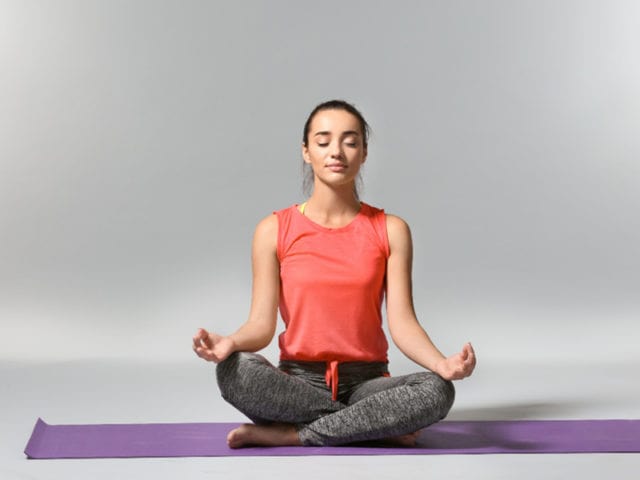Are you stressed out, anxious all the time, can’t sleep, sad and depressed?
If you have answered yes to any of these questions and you are asked if you are happy, most probably the answer is no. Do not resign yourself to thinking that these problems, so common in our society, are normal or that they can be solved with pills.
Don’t resign yourself to thinking that these problems, so common in our society, are normal or that they can be solved with pills.
There is a completely harmless practice that can help you have more serenity and regain your balance. Without medication, effort, or pressure.
It’s called meditation, and I’m sure you’ve heard of it.
And, no, it’s not boring if you know how to do it correctly. You don’t need a lot of time to feel its effects, you only need 5 minutes a day to start seeing its benefits.
Give yourself a chance and try it.
If after a month of practicing it as we indicated, you don’t notice any improvement, leave us a comment in this article.
Of course, meditation is not miraculous. It must be practiced regularly and you must understand exactly how it works and what are its real benefits. Here we tell you all about it.
Meditation is flexible and should adapt to you, not you to it.
How to learn to meditate?
By this, we mean that meditation is not a complex practice that requires specific rules. Meditation must adapt to you.
here are some steps to meditate:
Choose the time that suits you best to practice it. It is important that there are no interruptions. Whether it is in the morning, afternoon, evening, night, or early morning, time is not important.
You can change the time of day according to your needs.
Make your environment an accomplice to help you meditate better, in short, tell them that this is your time and not to interrupt you.
Do not create preconceived ideas: The idea is not to control your thoughts, but not to get stuck in them. Let them flow. But it will cost, and it is normal that it will cost. It will not always cost you the same and, even if you have been meditating for a long time, sometimes it will not be so easy.
Meditation implies not being demanding with yourself, on the contrary. Understand that your brain cannot stop thinking, it is its job. Meditation will not help you to stop doing it, meditation will make you understand this fact, accept it and overcome it, not letting yourself be dragged by the loop of thought.
How to meditate correctly?
Let’s get down to work: To meditate correctly, we need to know a number of important things that will help us to make the experience, especially at the beginning, more fulfilling. Once you get practice, you will be able to meditate or feel its effects even in a Coldplay concert.

If you are wondering how to meditate, here are the answers.
Clothes: There is no established rule, but common sense should prevail. If we want to relax and feel peace, meditating in shoes that are too tight or pants that cut off our circulation is not a very good idea, don’t you think? Therefore, it is better to choose comfortable clothes that are not too tight and that do not make us too hot or too cold.
Place: To achieve this atmosphere, it is important that the chosen place is quiet, that there are no interruptions and no loud noises, and that it has a pleasant temperature.
Concentration: As we have already mentioned, the mind is free. Our brain constantly emits thoughts and will not stop doing so because you meditate, but understanding this process will help you to meditate better. A useful technique to let thoughts flow is to concentrate on something. The usual way is to focus on your breathing, which is very helpful in learning how to breathe optimally. But, you can try whatever works best for you, such as focusing on a fixed point or on the sensations of your own body.
Self-indulgence: Don’t push yourself. Don’t pretend to be a master of meditation, just limit yourself to being an eternal learner. The benefits will come anyway.
Consistency: Regular and progressive practice is essential to internalize meditation and this arises spontaneously at the right times. Remember: It only takes 21 days to create a habit.

